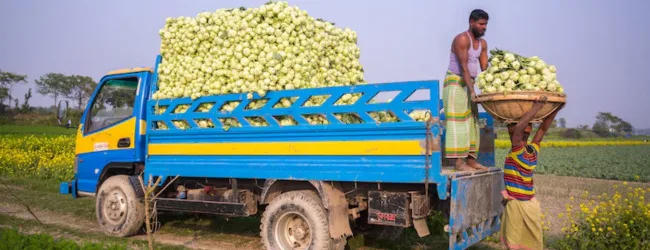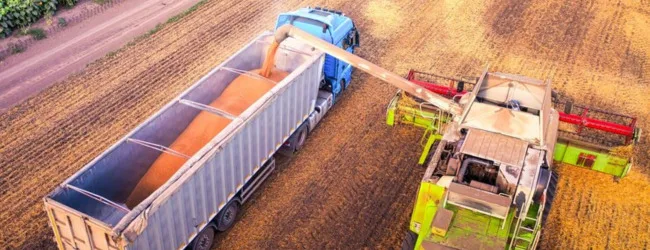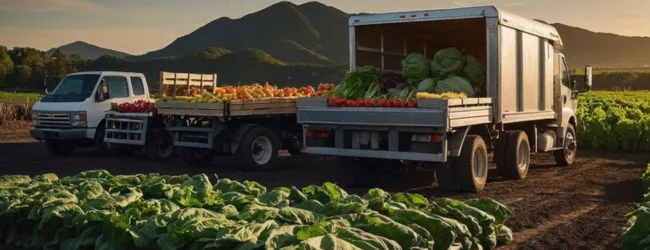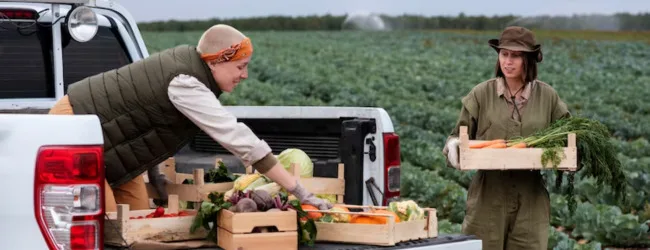Table of contents
- What is Truck Farming?
- Key Features of Truck Farming
- Techniques Used in Truck Farming
- Common Crops in Truck Farming
- Truck Farming in India: Statistics & Trends
- Regions in India Practising Truck Farming
- Benefits of Truck Farming
- Marketing & Sales Channels
- Challenges in Truck Farming
- Conclusion
- Frequently Asked Questions (FAQs)
Truck farming is a modern farming method where farmers grow fruits and vegetables on a large scale and transport them directly to markets, especially in cities. This approach helps deliver fresh produce quickly and efficiently, meeting the high demand in urban areas.
What is Truck Farming?

Truck farming, also known as market gardening, involves cultivating perishable crops like fruits and vegetables and transporting them swiftly to nearby markets. The term “truck” comes from the old English word “truckle,” meaning to barter or exchange. This farming method is especially prevalent near urban centres to ensure quick delivery and freshness of produce.
Key Features of Truck Farming
- Focus on Perishable Crops: Emphasis on fruits and vegetables that require rapid transportation to maintain freshness.
- Proximity to Markets: Farms are located close to urban areas to reduce transportation time and costs.
- Intensive Cultivation: Utilisation of small land areas with high-yield techniques.
- Direct Marketing: Farmers often sell produce directly to consumers or local markets, bypassing intermediaries.
Techniques Used in Truck Farming

- Raised Bed Farming: Enhances drainage and soil warmth, promoting faster crop growth.
- Drip Irrigation: Efficient water usage by delivering water directly to plant roots.
- Mulching: Retains soil moisture and suppresses weed growth.
- Crop Rotation: Prevents soil nutrient depletion and reduces pest infestations.
- Use of Greenhouses: Allows year-round cultivation and protection from adverse weather.
Common Crops in Truck Farming
| Fruits & Vegetables | Herbs & Others |
|---|---|
| Tomatoes | Basil |
| Lettuce | Mint |
| Cucumbers | Coriander |
| Bell Peppers | Parsley |
| Strawberries | Dill |
| Spinach | Chives |
| Carrots | Oregano |
| Cabbage | Thyme |
💡 Pro Tip: If you want to start a Business but have too many doubts, connect with a Business expert from Boss Wallah for guidance – Check Out
Truck Farming in India: Statistics & Trends
- Market Size: The Indian truck market reached USD 23,864.7 million in 2024 and is projected to grow at a CAGR of 7.46% to USD 47,140.2 million by 2033.
- Tractor Sales: Uttar Pradesh witnessed a 62% increase in tractor sales over the last eight years, indicating a shift towards mechanised farming.
- Urban Demand: Rapid urbanisation has led to increased demand for fresh produce, making truck farming a viable solution to meet this need.
Regions in India Practising Truck Farming
- Punjab & Haryana: Known for large-scale vegetable cultivation.
- Maharashtra: Regions around Pune and Nashik are prominent for fruit and vegetable farming.
- Karnataka: Areas near Bengaluru engage in truck farming to supply the city’s markets.
- Tamil Nadu: Districts like Coimbatore and Erode are active in this farming method.
- For More Info:
ALSO READ | Extensive Farming: What is it, Practices, Investment, Benefits & More
Benefits of Truck Farming

- Economic Advantages:
- Higher profit margins due to direct sales.
- Reduced transportation costs.
- Environmental Impact:
- Lower carbon footprint with shorter supply chains.
- Efficient land use and sustainable practices.
- Social Benefits:
- Employment opportunities in rural areas.
- Improved access to fresh produce for urban populations.
ALSO READ | Jhoom Farming: Definition, Significance, Practices & More
Marketing & Sales Channels

- Local Markets: Selling directly to consumers in nearby markets.
- Wholesale Buyers: Supplying to restaurants, hotels, and retailers.
- Online Platforms: Utilising e-commerce to reach a broader customer base.
- Community Supported Agriculture (CSA): Engaging consumers who subscribe to regular produce deliveries.
Challenges in Truck Farming
- Perishability: High risk of spoilage if not transported promptly.
- Market Fluctuations: Prices can vary, affecting profitability.
- Infrastructure: Need for better roads and storage facilities.
- Access to Credit: Small farmers may face difficulties in obtaining loans.
Need Expert Guidance?
Starting a business can be challenging, but you don’t have to do it alone! At Boss Wallah, our 2,000+ business experts are ready to provide valuable insights and guidance. Whether you need help with marketing, finance, sourcing, or any other area of any business, our business experts are here to help you succeed
Confused about Which Business to Start?
Want to start your own business but unsure which one to choose? Explore Boss Wallah, where you’ll find 500+ courses by successful business owners, featuring practical, step-by-step guides on starting and growing various businesses.
Find your perfect business idea today
Conclusion
Truck farming presents a promising avenue for Indian farmers to meet the growing demand for fresh produce in urban areas. By adopting modern techniques and focusing on efficient supply chains, farmers can enhance profitability and contribute to the nation’s food security.
Frequently Asked Questions (FAQs)
1. What is truck farming?
- It’s the cultivation of perishable crops like fruits and vegetables for quick transport to nearby markets.
2. Why is it called “truck” farming?
- The term “truck” originates from the old English word “truckle,” meaning to barter or exchange.
3. Which crops are commonly grown?
- Tomatoes, lettuce, cucumbers, bell peppers, strawberries, and various herbs.
4. Where is truck farming prevalent in India?
- Regions near urban centres like Punjab, Maharashtra, Karnataka, and Tamil Nadu.
5. What are the benefits of truck farming?
- Higher profits, reduced transportation costs, and fresh produce availability.
6. What challenges do truck farmers face?
- Perishability of produce, market price fluctuations, and infrastructure issues.
7. How does truck farming differ from traditional farming?
- It focuses on perishable crops and quick delivery, unlike traditional farming, which may involve staple crops with longer shelf lives.
8. Is truck farming sustainable?
- Yes, with efficient practices and proximity to markets, it reduces waste and carbon footprint.
9. Can small farmers engage in truck farming?
- Absolutely, especially if they are near urban markets and adopt efficient cultivation methods.
10. How can one start truck farming?
- Begin with market research, select suitable crops, adopt modern farming techniques, and establish reliable transportation channels.


